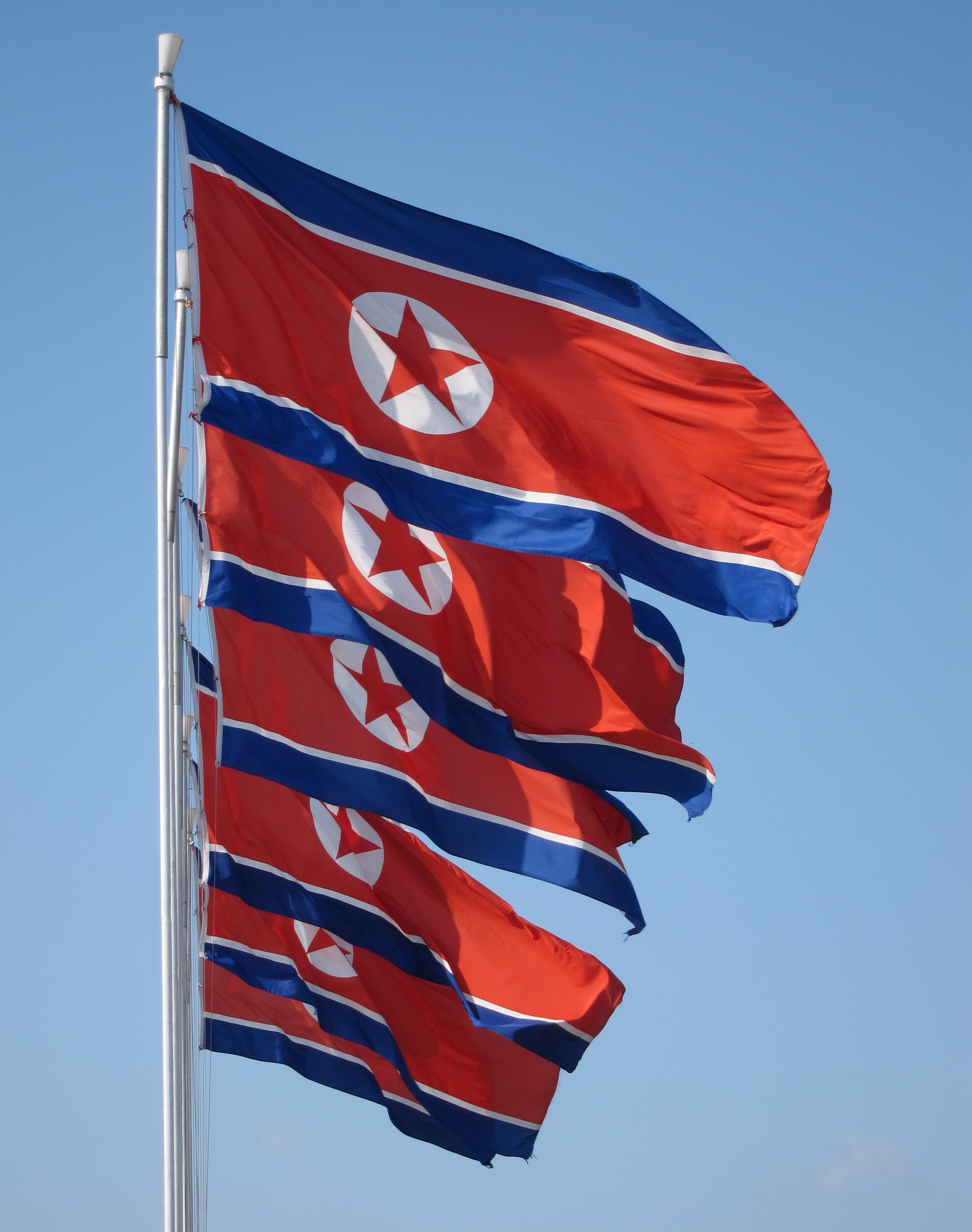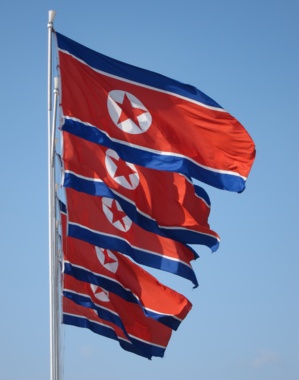December 11, North Korean leader Kim Jong-un stated that the country has thermonuclear weapons, but most of analytics doubted the statement. Russia and China have not yet expressed their attitude to the incident, South Korea, Japan and the United States strongly condemned the alleged test, and promised to take most serious measures.
When leader of the Democratic People Republic of Korea (DPRK) Kim Jong-un said that the country is "capable of exploding atomic and hydrogen bombs" for defense, none of experts believed him. Nevertheless, as reported today by the North Korean agency KCNA, «the national history of 5000 years ... experienced an exciting event": the hydrogen bomb has been tested. This, according to the agency, took place at 10:00 on January 6, that is, the 105 year in the North Korean Juche calendar, originated from the birth of Kim Il Sung.
The report emphasizes that the tests were carried out "safely and flawlessly, and did not have negative consequences for the environment." With this, the country "proudly entered ranks of advanced nuclear states." Now, according to the agency, it is protected from the "ever-growing nuclear threat and blackmail of the US-led forces of aggression ... treacherous gang of robbers, sparing no effort to bring down nuclear disaster to North Korea". North Korea, the report said, is a "peace-loving nation, which has made every effort to protect peace on the Korean peninsula."
Even before the publication of official reports, the US Geological Survey registered an earthquake of magnitude 5.1 points occurred in North Korea around 1:00 am GMT. The epicenter, according to the organization, was 10 kilometers underground, but later, the South Korean agency Yonhap reported that there was an earthquake shock close to the surface. Both organizations have put the proposed location in the vicinity of a test station Punggye-ri, previously used to detonate nuclear devices. Observation stations of the Comprehensive Nuclear-Test-Ban Treaty (CTBT) also recorded an "unusual seismic activity in North Korea."
Washington has declined to comment on the situation, but said the United States condemns any violation of UN Security Council resolutions, reports Associated Press. The official representative of the National Security Council at the White House, Ned Price noted that the US "is monitoring the situation in close cooperation with our regional partners."
The reaction of "regional partners" unsurprisingly proved to be more rigid. South Korea raised its military alert and intensified intelligence work to clarify the incident’s circumstances. "At the moment, our forces are expanding supervision operations and are improving vigilance with regard to North Korea," commented Ministry of National Defense of South Korea on Yonhap. Official Seoul, in turn, said "South Korea will cooperate with partners in the region to make North Korea pay for the hydrogen bomb testing."
Prime Minister of Japan Shinzo Abe said that Tokyo "definitely cannot let that happen and condemns (the testing) very strongly." The Head of State promised to take "active measures" and to work with the United States, Russia, China, South Korea and the United Nations to influence North Korea.
Chinese authorities have not yet published any official comments. «Xinhua»’s message about the incident is neutral. It points out that "China has always promoted denuclearization of the Korean Peninsula and maintain the position that all involved parties should refrain from unilateral steps that can impair regional peace and security."
The explosion was carried out by North Korea on the background of failed attempts of normalization of inter-Korean relations. Hopes were pinned on high-level talks between South Korea and North Korea held on 12 December last year, but they ended without result. The parties could not even agree on a joint statement, which is traditional for this kind of meetings.
Recall that North Korea tested nuclear bombs in 2006, 2009 and 2013, despite condemnation of most of the world. With UN Security Council Resolution №1718, №1874, №2087, №2094, North Korea was punished with widespread international sanctions.
When leader of the Democratic People Republic of Korea (DPRK) Kim Jong-un said that the country is "capable of exploding atomic and hydrogen bombs" for defense, none of experts believed him. Nevertheless, as reported today by the North Korean agency KCNA, «the national history of 5000 years ... experienced an exciting event": the hydrogen bomb has been tested. This, according to the agency, took place at 10:00 on January 6, that is, the 105 year in the North Korean Juche calendar, originated from the birth of Kim Il Sung.
The report emphasizes that the tests were carried out "safely and flawlessly, and did not have negative consequences for the environment." With this, the country "proudly entered ranks of advanced nuclear states." Now, according to the agency, it is protected from the "ever-growing nuclear threat and blackmail of the US-led forces of aggression ... treacherous gang of robbers, sparing no effort to bring down nuclear disaster to North Korea". North Korea, the report said, is a "peace-loving nation, which has made every effort to protect peace on the Korean peninsula."
Even before the publication of official reports, the US Geological Survey registered an earthquake of magnitude 5.1 points occurred in North Korea around 1:00 am GMT. The epicenter, according to the organization, was 10 kilometers underground, but later, the South Korean agency Yonhap reported that there was an earthquake shock close to the surface. Both organizations have put the proposed location in the vicinity of a test station Punggye-ri, previously used to detonate nuclear devices. Observation stations of the Comprehensive Nuclear-Test-Ban Treaty (CTBT) also recorded an "unusual seismic activity in North Korea."
Washington has declined to comment on the situation, but said the United States condemns any violation of UN Security Council resolutions, reports Associated Press. The official representative of the National Security Council at the White House, Ned Price noted that the US "is monitoring the situation in close cooperation with our regional partners."
The reaction of "regional partners" unsurprisingly proved to be more rigid. South Korea raised its military alert and intensified intelligence work to clarify the incident’s circumstances. "At the moment, our forces are expanding supervision operations and are improving vigilance with regard to North Korea," commented Ministry of National Defense of South Korea on Yonhap. Official Seoul, in turn, said "South Korea will cooperate with partners in the region to make North Korea pay for the hydrogen bomb testing."
Prime Minister of Japan Shinzo Abe said that Tokyo "definitely cannot let that happen and condemns (the testing) very strongly." The Head of State promised to take "active measures" and to work with the United States, Russia, China, South Korea and the United Nations to influence North Korea.
Chinese authorities have not yet published any official comments. «Xinhua»’s message about the incident is neutral. It points out that "China has always promoted denuclearization of the Korean Peninsula and maintain the position that all involved parties should refrain from unilateral steps that can impair regional peace and security."
The explosion was carried out by North Korea on the background of failed attempts of normalization of inter-Korean relations. Hopes were pinned on high-level talks between South Korea and North Korea held on 12 December last year, but they ended without result. The parties could not even agree on a joint statement, which is traditional for this kind of meetings.
Recall that North Korea tested nuclear bombs in 2006, 2009 and 2013, despite condemnation of most of the world. With UN Security Council Resolution №1718, №1874, №2087, №2094, North Korea was punished with widespread international sanctions.






